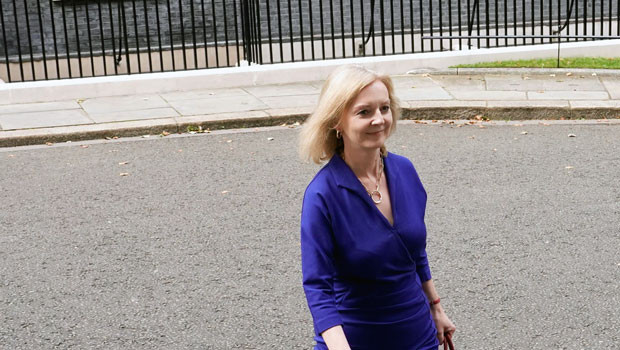Markets rally on speculation of more UK mini-budget reversals

Sterling and gilts rallied on Thursday, as speculation mounted that elements of the government’s controversial mini-budget could be scrapped.
Foreign secretary James Cleverly had insisted during morning media interviews that the government remained committed to its growth agenda, while the prime minister’s official spokesperson said: "The position has not changed."
But that did not stop markets pricing in the likelihood of another U-turn, with the pound jumping 1.5% against the dollar on Thursday at $1.1262, and the 30-year gilt yield - already supported after the Bank of England made £4.4bn of bond purchases - ticking lower to 4.46%.
Markets have been in turmoil since 23 September, when chancellor Kwasi Kwarteng announced £45bn of unfunded tax cuts but did not detail spending plans or publish economic forecasts. The statement caused sterling to plunge and gilt yields to rise, while the BoE was forced to step in with a £65bn emergency support package, to prevent at-risk pension funds from collapsing.
The government eventually bowed to pressure, first by scrapping the planned abolition of the 45p tax rate, and then by agreeing to bring forward its spending plans - and the publication of the Office for Budget Responsibility’s forecasts - to 31 October, from the originally scheduled 23 November.
Beyond that, the government has publicly insisted it stands by the mini-budget.
But on Wednesday, Liz Truss said in Prime Minister's Questions that she would not cut public spending, prompting speculation that the government would have to scrap some or all of the mini-budget instead.
Sky News reported on Thursday that discussions were underway over which parts could be dropped, while BBC Newsnight’s Nicholas Wyatt tweeted he had been told by a former cabinet minister to "brace for the mother of all U-turns on the mini-budget".
Both The Guardian and The Sun, meanwhile, citing unnamed government sources, reported that Truss was considering putting up corporation tax. Previous chancellor and leadership rival Rishi Sunak had intended to increase the tax to 25% from 19% from next year. Truss said on the leadership campaign trail she would undo that, and the mini-budget confirmed the tax would be frozen at 19%.
Kwarteng, who is currently in Washington meeting with the International Monetary Fund, told Channel 4 News: "I’ll be coming out with a statement on 31 October and I’m not going to pre-empt that."